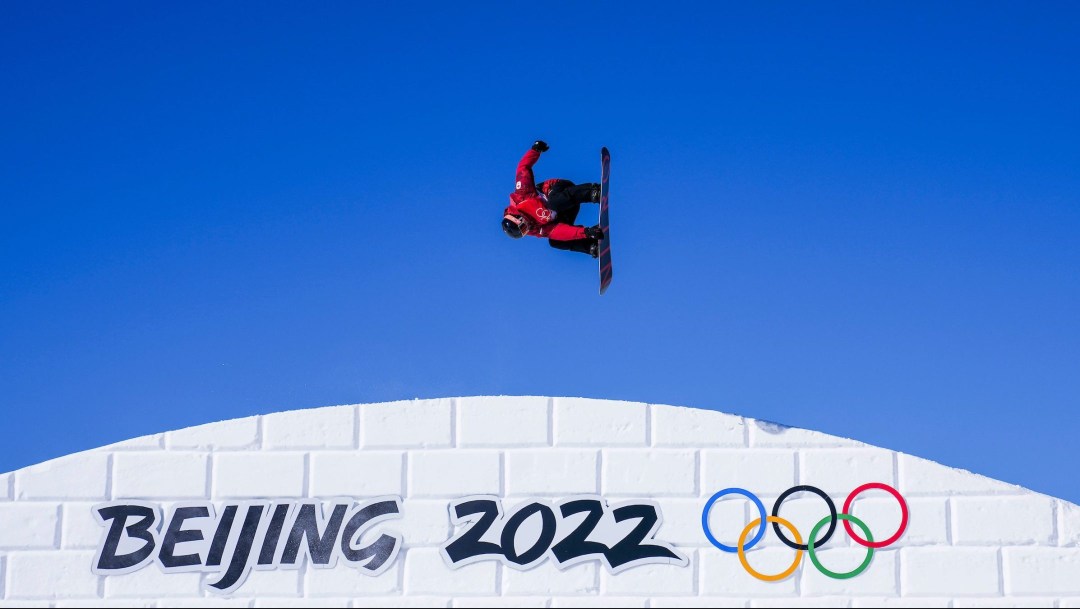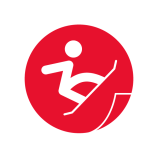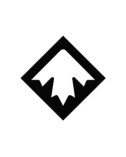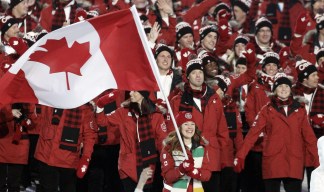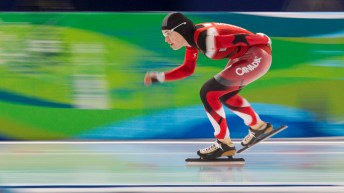Snowboard
Team Canada Medal Count
Sport Overview
Snowboarding at Milano Cortina 2026
Venue: Livigno Snow Park
Competition Dates: February 5, 7-9, 11-13, 15-18 (Days -1, 1-3, 5-7, 9-12)
Events: 11 (5 men, 5 women, 1 mixed)
| Men’s Events | Women’s Events | Mixed Events |
|---|---|---|
| Men’s Parallel Giant Slalom Men’s Snowboard Cross Men’s Snowboard Halfpipe Men’s Snowboard Slopestyle Men’s Snowboard Big Air | Women’s Parallel Giant Slalom Women’s Snowboard Cross Women’s Snowboard Halfpipe Women’s Snowboard Slopestyle Women’s Snowboard Big Air | Mixed Team Snowboard Cross |
There are five individual Olympic snowboard events for each gender, each featuring athletes riding similar shaped boards. But while some of these events are based purely on speed, others are fully judged. All involve great technical skill.
Parallel Giant Slalom
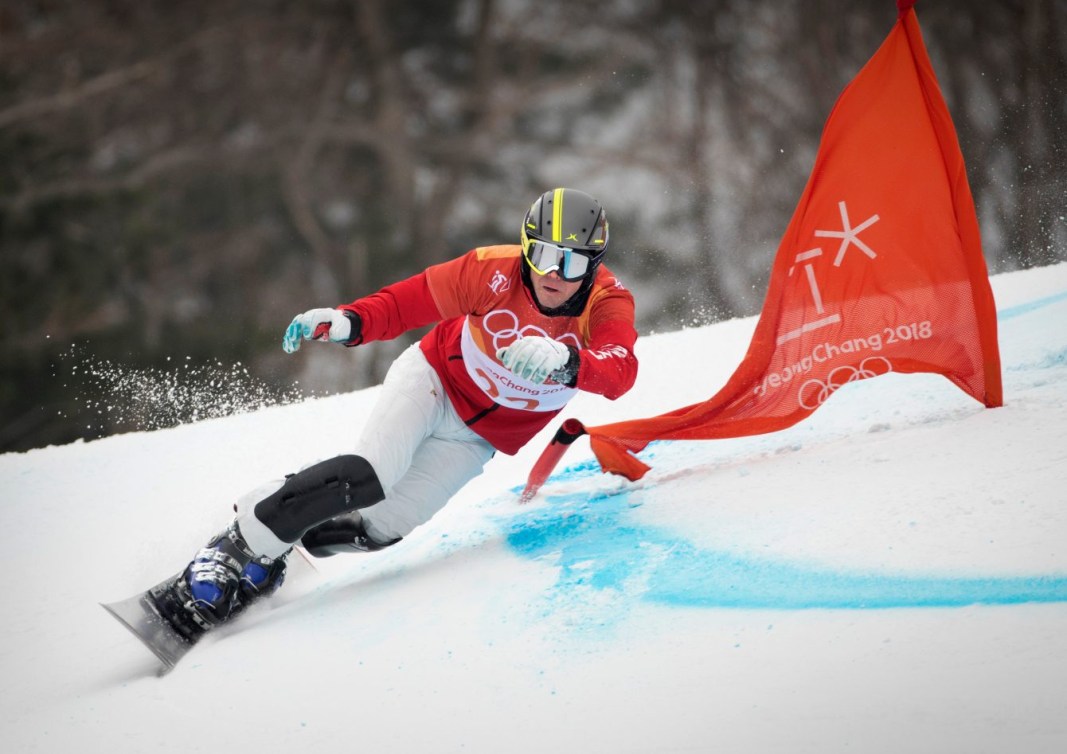
In the parallel giant slalom, two riders race head-to-head through a series of gates down two parallel courses. In the qualification round, all riders do a run on each of the red and blue courses. The two times are added together and the 16 fastest riders advance to the elimination finals, which is formatted as a direct knockout bracket. Beginning with the 1/8 finals, two competitors ride simultaneously down the parallel courses. The first to the bottom advances to the next round. Eliminations continue through the quarterfinals and semifinals, from which the two winners move on to race for gold and silver in the Big Final while the losers face off for bronze in the Small Final.
Snowboard Cross and Mixed Team Snowboard Cross
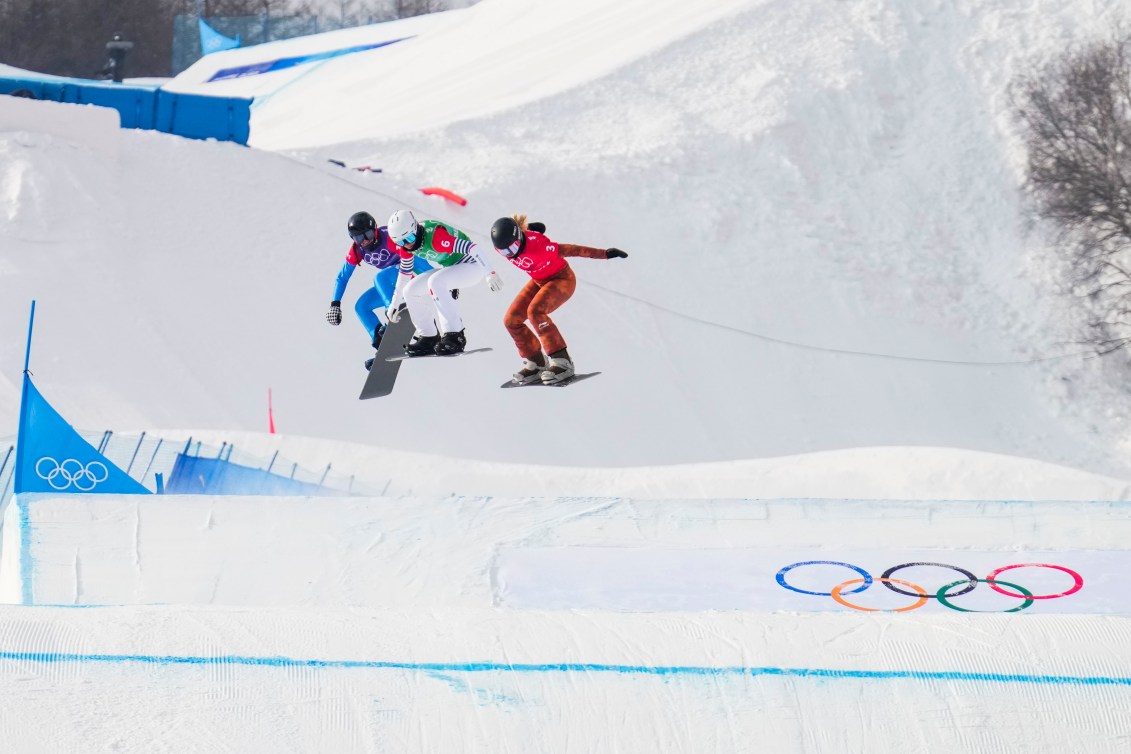
In snowboard cross, riders race in packs over a course featuring a variety of terrain including jumps, berms, rollers, and other obstacles. The competition begins with a qualification round in which riders race individually against the clock. All riders get two runs with only the fastest one being used to determine who advances to the elimination finals. During the finals, riders race in heats of four with the top two in each heat advancing to the next phase until four riders remain to race in the Big Final for the medals.
In mixed team snowboard cross, each team is composed of one man and one woman. In each heat, the men go down the course first. Once all four riders have cleared the course, the gates at the top open so that the women start in the order and intervals that match how their male teammates crossed the finish line.
Halfpipe
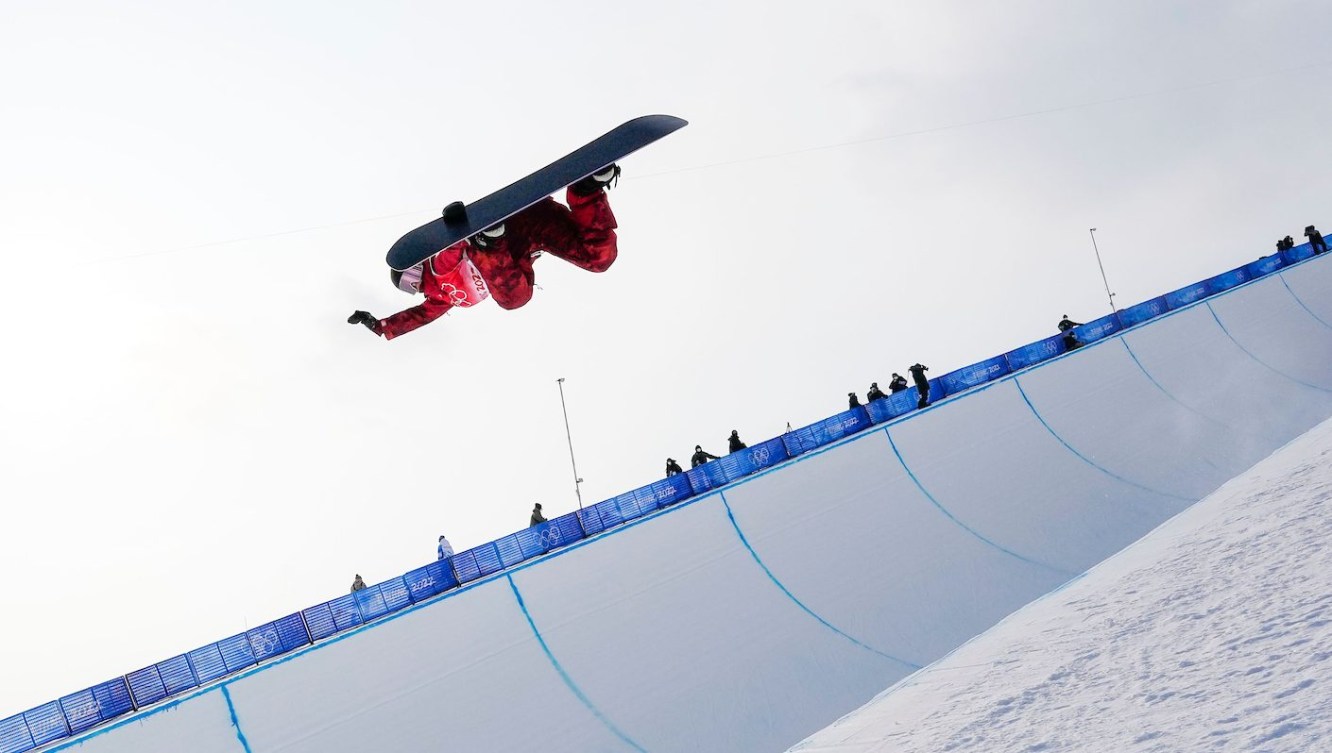
In halfpipe, one rider performs at a time in a sloped half-cylinder of snow. Their routine includes acrobatic flips, spins, and airs as they move back and forth from one wall to another. Riders are judged on the variety, difficulty, style, and execution of their maneuvers, including the amplitude they achieve above the walls, the cleanliness of their landings, and their form in the air. Riders will perform two runs in qualification and three runs in the final, but in each round, only the highest-scoring run counts towards the results.
Slopestyle and Big Air
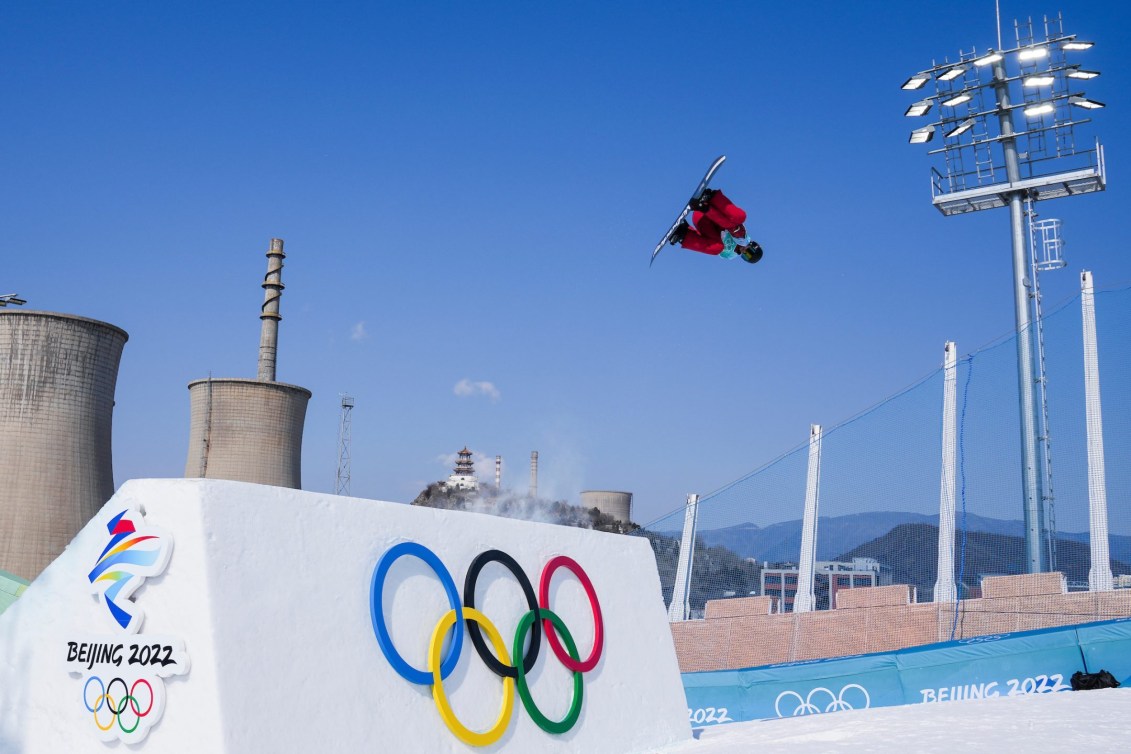
In slopestyle, riders go down a course comprising various obstacles such as hips, jumps, rails, and boxes. Judges evaluate the runs for their overall composition, including the sequence, difficulty, style and execution of the tricks, the amount of risk in the routine (including the amplitude achieved) and how the rider uses the course. Riders will perform two runs in qualification and the final, but in each round, only the highest-scoring run counts towards the results.
Big air features riders performing a single trick jump. Travelling down a long ramp, they kick into the air to attain maximum height and distance before securing a clean landing. Tricks are evaluated by a panel of judges for their difficulty, style, and execution. In both the qualification and final rounds, each rider takes three runs with the two highest scoring runs combined to determine the overall results.
Canadian Olympic Snowboard History (Pre-Milano Cortina 2026)
Canada has won 17 Olympic snowboard medals since the sport made its Olympic debut at Nagano 1998.
Six of those medals were won at Beijing 2022. In men’s slopestyle, Max Parrot and Mark McMorris shared the podium for a second straight Games as Parrot won gold and McMorris won bronze. At PyeongChang 2018, Parrot had claimed silver while McMorris took bronze. McMorris was the only slopestyle snowboarder to stand on the podium in the first three Olympic Games in which the event was included, having also won bronze at Sochi 2014.
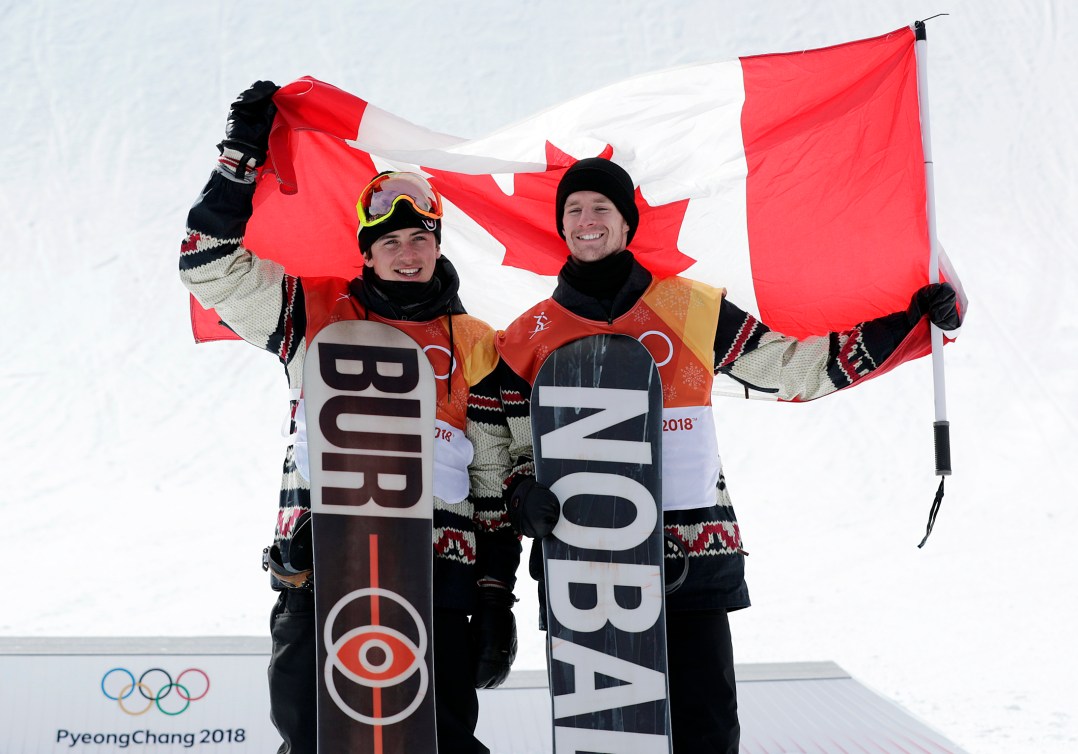
Parrot was a double medallist in Beijing, also earning big air bronze. That was Canada’s second straight Olympic medal in men’s big air after Sébastien Toutant won the first ever Olympic gold in the event at PyeongChang 2018. It was also in PyeongChang that Canada’s first Olympic medal was won in women’s slopestyle as Laurie Blouin came back from a crash in training that left her with a black eye to win silver amidst tricky weather conditions.
Canada’s other three snowboard medals at Beijing 2022 were won in snowboard cross. Meryeta O’Dine won bronze in women’s snowboard cross, which was followed by a silver for Éliot Grondin in men’s snowboard cross. They then joined forces to win bronze in the Olympic debut of mixed team snowboard cross.
Canada has been very successful in snowboard cross since it was added to the Olympic program at Turin 2006. At those Games, Dominique Maltais won bronze in the women’s event. Teammate Maëlle Ricker also competed in that Big Final, but had an unfortunate crash which left her off the podium.
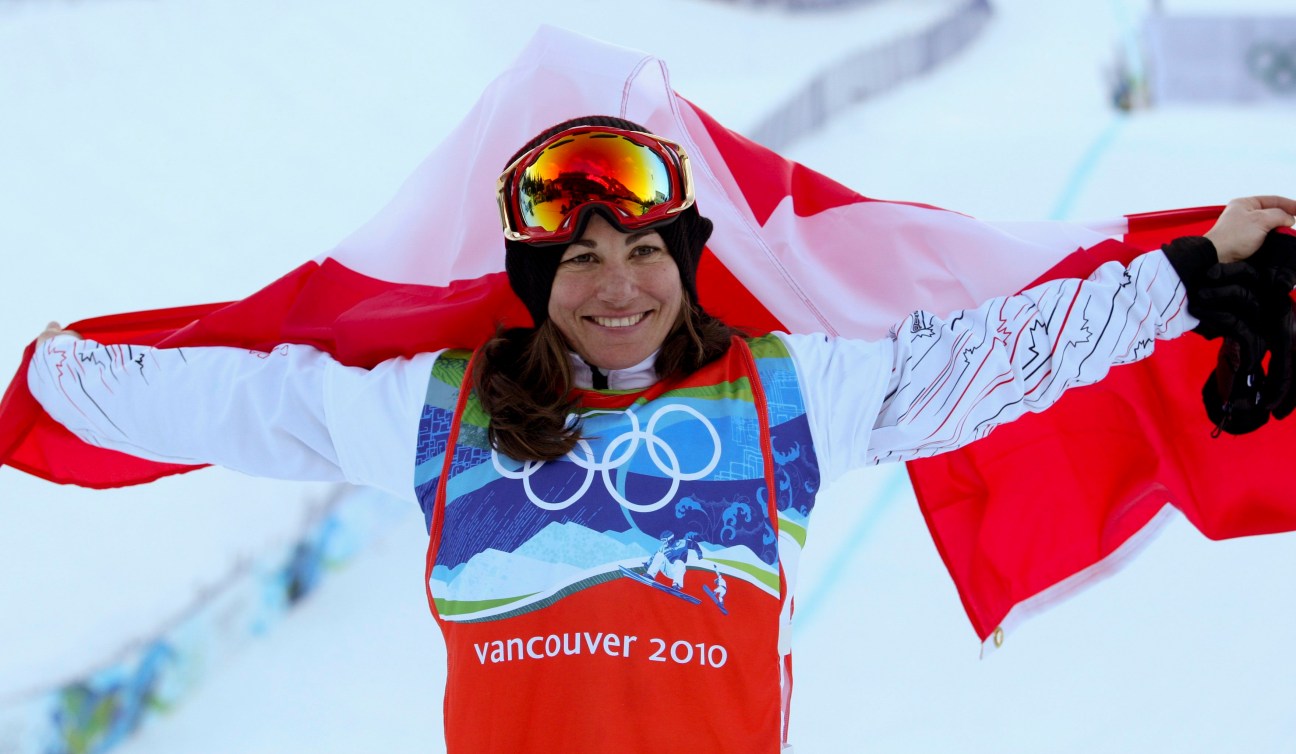
Four years later at Vancouver 2010, Ricker got her redemption in the best way possible, winning Olympic gold in in her home province. Mike Robertson added a silver in men’s snowboard cross. At Sochi 2014, Maltais returned to the podium, this time winning snowboard cross silver to become Canada’s first two-time Olympic medallist snowboarder.
One of Canada’s most memorable moments of Vancouver 2010 was Jasey-Jay Anderson winning gold in the men’s parallel giant slalom. In his fourth Olympic appearance, the man who had won everything else in the sport and was considered an all-time great finally got his first Olympic medal.
Canada’s first Olympic snowboard medal was won in the sport’s first Olympic appearance. Ross Rebagliati captured gold in the since discontinued men’s giant slalom event.
Olympic Snowboard History
When snowboard was added to the Olympic program for Nagano 1998, there were two events for each gender: giant slalom and halfpipe. Halfpipe is the oldest Olympic snowboard discipline because at Salt Lake City 2002, giant slalom was replaced by parallel giant slalom.
A third set of events was added at Turin 2006: men’s and women’s snowboard cross. The next change to the Olympic program came at Sochi 2014 where men’s and women’s slopestyle events were included for the first time and there was a one-time appearance of men’s and women’s parallel slalom events, giving alpine snowboarders a second event.
At PyeongChang 2018, men’s and women’s big air events made their Olympic debut. A mixed team snowboard cross event was added at Beijing 2022.
Canadian Medallists
| Games | Event | Athlete | Finish |
|---|---|---|---|
| Nagano 1998 | Men's Giant Slalom | Ross Rebagliati | Gold |
| Vancouver 2010 | Women's Snowboard Cross | Maëlle Ricker | Gold |
| Vancouver 2010 | Men's Parallel Giant Slalom | Jasey-Jay Anderson | Gold |
| PyeongChang 2018 | Men's Big Air | Sébastien Toutant | Gold |
| Beijing 2022 | Men's Slopestyle | Max Parrot | Gold |
| Vancouver 2010 | Men's Snowboard Cross | Mike Robertson | Silver |
| Sochi 2014 | Women's Snowboard Cross | Dominique Maltais | Silver |
| PyeongChang 2018 | Men's Slopestyle | Max Parrot | Silver |
| PyeongChang 2018 | Women's Slopestyle | Laurie Blouin | Silver |
| Beijing 2022 | Men's Snowboard Cross | Eliot Grondin | Silver |
| Turin 2006 | Women's Snowboard Cross | Dominique Maltais | Bronze |
| Sochi 2014 | Men's Slopestyle | Mark McMorris | Bronze |
| PyeongChang 2018 | Men's Slopestyle | Mark McMorris | Bronze |
| Beijing 2022 | Men's Slopestyle | Mark McMorris | Bronze |
| Beijing 2022 | Women's Snowboard Cross | Meryeta O'Dine | Bronze |
| Beijing 2022 | Mixed Team Snowboard Cross | Eliot Grondin, Meryeta O'Dine | Bronze |
| Beijing 2022 | Men's Big Air | Max Parrot | Bronze |
Teams
Beijing 2022
- Arnaud Gaudet
- Audrey McManiman
- Brooke D’Hondt
- Brooke Voigt
- Darcy Sharpe
- Eliot Grondin
- Elizabeth Hosking
- Jasmine Baird
- Jennifer Hawkrigg
- Jules Lefebvre
- Kaylie Buck
- Kevin Hill
- Laurie Blouin
- Liam Gill
- Liam Moffatt
- Mark McMorris
- Max Parrot
- Megan Farrell
- Meryeta O’Dine
- Sébastien Beaulieu
- Sébastien Toutant
- Tess Critchlow
- Zoe Bergermann
Sochi 2014
- Alexandra Duckworth
- Ariane Lavigne
- Brad Martin
- Caroline Calvé
- Charles Reid
- Chris Robanske
- Crispin Lipscomb
- Derek Livingston
- Dominique Maltais
- Jake Holden
- Jasey-Jay Anderson
- Jenna Blasman
- Katie Tsuyuki
- Kevin Hill
- Maëlle Ricker
- Marianne Leeson
- Mark McMorris
- Matthew Morison
- Max Parrot
- Mercedes Nicoll
- Michael Lambert
- Rob Fagan
- Sébastien Toutant
- Spencer O’Brien

